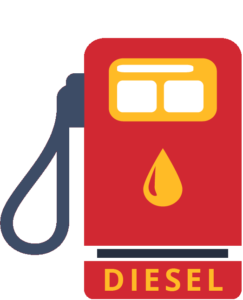British Columbia will invest $4 million into the B.C. Hydrogen Ports Project (BCH2 Ports), introducing infrastructure such as a high-capacity fueling station that will initially support heavy-duty hydrogen-electric vehicles.
The station will be located at a Parkland Corporation cardlock on Tsawwassen First Nation land, while the hydrogen will be supplied by HTEC — a production, distribution, dispensing and fleet-services company.
It marks the province’s first large-scale project to use hydrogen and fuel cells for shipping and transportation.

“We’re working to reduce emissions in B.C.’s commercial transport sector, which accounts for about 60% of transport emissions and 25% of total provincial emissions,” Energy, Mines and Low Carbon Innovation Minister Josie Osborne said in a press release. “Hydrogen will be essential in helping B.C. make the transition to cleaner energy solutions as we work toward meeting legislated greenhouse gas reduction targets.”
The pilot project, expected to begin in early 2024, will also demonstrate four fuel-cell-electric yard trucks and a pair of Class 8 drayage trucks that HTEC will lease to fleet operators. The trucks are being developed by Hexagon using its Type IV hydrogen-storage system and high-energy density Li-ion battery packs, and will be powered by Ballard’s FCmove HD+ fuel-cell engine.
Harbour Link Container Services, Tidewater Container Services, and BC Ferries Commercial Services will operate the vehicles throughout the Port of Vancouver.
Zero-emissions future
“Advancing low-carbon hydrogen projects, while deploying hydrogen electric heavy-duty vehicles and hydrogen-fueling infrastructure to support them, will help propel the drive to a zero-emissions future. We hope that this project will pave the way for similar actions across Canada in the future and help the country reach its net-zero goals,” said Colin Armstrong, HTEC president and CEO.
Provincial funding for the project will come from CleanBC’s Commercial Vehicle Pilots program, and the Advanced Research and Commercialization program, as well as consortium members.
More than half of Canada’s hydrogen and fuel cell companies are based in B.C., while the province accounts for about 60% of the research investments in hydrogen and fuel cells.
Hydrogen has the potential to reduce B.C. emissions by 7.2 megatonnes of carbon dioxide equivalents per year by 2050, the province says.





